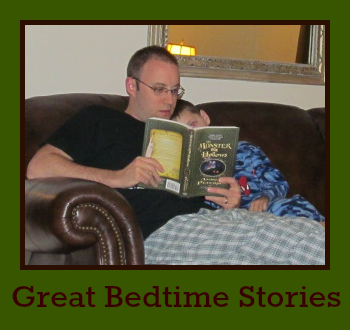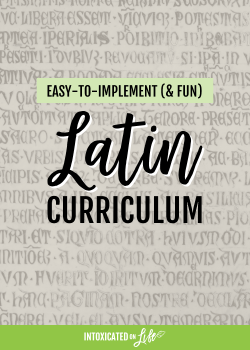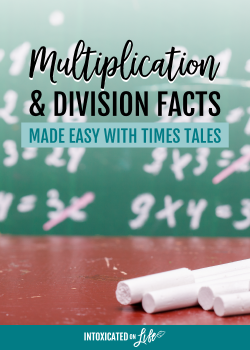
This is the world of Andrew Peterson’s Wingfeather Saga.
Recently my seven-year-old and I have been reading through the first three books of this series: On the Edge of the Dark Sea of Darkness, North! Or Be Eaten, and The Monster in the Hollows. (The fourth and last book, The Warden and the Wolf King, will probably be published the spring of 2013). He loves these books, and I have found them incredibly entertaining.
Christian Fiction?
C.S. Lewis wisely stated that the best way to spread Christian ideas and doctrine is not by writing more little books about Christianity but by writing more little books by Christians on other subjects—with their Christianity latent. That is exactly what the Wingfeather series is. It is first and foremost just really well-written young adult fiction. Great stories. Creative writing style. Excellent character development. But underneath it all is a strong Christian undertow, a story that pulls the reader into an exciting world where the Maker has a plan, evil is real and personal, and the main characters must embrace who they really are if they are to win the great war.
On the Edge of the Dark Sea of Darkness
In the first book we meet the young Igiby children: Janner, Tink, and Leeli. The story follows the the Igiby family as they attempt to avoid the watching eye of the Fangs of Dang, lizard-like creatures who govern the land of Skree as cruel overlords. The children live with their loving mother Nia and their former-pirate grandfather Podo in a small cottage close to the edge of the great Dark Sea of Darkness.
Janner and Tink, the oldest of the Igiby children, learn there is more to their small township of Glipwood. What long-hidden secrets can be found in the rare book collection in local bookshop? Who (or what) lives at Anklejelly Manor north of the township? What are the lost Jewels of Anniera and why do the Fangs want them so badly? Why does the local crazy man wear socks on his hands?
As the book comes to a close and the secrets are unraveled, the children find themselves facing a great danger they never could have imagined. It is a story that illustrates the bravery of unlikely heroes, the unbreakable love of family, and the uncompromising nature of evil.
North! Or Be Eaten

North! is a fast-paced book. Each chapter brings characters face-to-face with all new dangers and tests. How will they outrun the Fang armies? How will they escape from the Strander clans who inhabit the East Bend of the River Blapp? What really goes on inside the dreaded Fork Factory? What secrets is Gnag hiding on the Phoob Islands? Will they ever be able to brave the cold of the Ice Prairies?
This book was my favorite of the three. The characters go through some rapid developments (and transformations). The odds against them are stacked so high, one wonders if the author has painted his own plot into a corner at times. But the strengths of each character will surprise you. It seems as if each character was born for their heroic moments. But the plot is also believable (in a fantasy-world kind of way): each character has their own personal flaws and weaknesses that reminds you of their ordinariness.
The Monster in the Hollows

The Monster in the Hollows takes the Wingfeather Saga to a whole new level, revealing even more startling details about the origins of the Igiby family and their connection to the nameless evil that is terrorizing the world. In their new home, Janner, Tink, and Leeli must again prove themselves to be no ordinary children.
. . . .
I highly recommend you read these books to your kids. The chapters are short, ideal bedtime stories, and packed with anticipation. My son and I are anxiously awaiting the last book in the saga.










I haven’t heard of these but I’ll be looking for them now. Thanks!
Great! They’ve been some of my favorites to read aloud.
I’ve read the first one (not aloud to my children, just for my own enjoyment) and loved it. Thanks for recommending the rest and suggesting them as a read-aloud. I think my girls would love it!
Thanks for linking up to RAT!
If you liked Dark Sea you’ll love North or Be Eaten.
I requested thes books for Christmas for the express purpose of reading them to my 3 boys (7, 6 and 5). I was not disappointed! We’re up to cahpter 23 of On the Edge of the Dark Sea of Darkness…it’s getting good…
That is…chapter…
And it only gets better…
Not knocking CS, but he was in error when he shared his notion regarding ‘the best way’ to spread Christian ideas and doctrine. I can only say that because the Bible records that ‘faith comes by hearing, and hearing by the word of God’ (Romans 10:17).
Having said that, I’m sure the WS is a wonderful series of Christian-themed books, I just wanted to address the ‘best way’ issue.
Hi Dave,
Here’s the Lewis quote in fuller context:
“We can make people (often) attend to the Christian point of view for half an hour or so; but the moment they have gone away from our lecture or laid down our article, they are plunged back into a world where the opposite position is taken for granted. As long as that situation exists, widespread success is simply impossible. We must attack the enemy’s line of communication. What we want is not more little books about Christianity, but more little books by Christians on other subjects—with their Christianity latent. You can see this most easily if you look at it the other way round. Our Faith is not very likely to be shaken by any book on Hinduism. But if whenever we read an elementary book on Geology, Botany, Politics, or Astronomy, we found that its implications were Hindu, that would shake us. It is not the books written in direct defence of Materialism that make the modern man a materialist; it is the materialistic assumptions in all the other books. In the same way, it is not books on Christianity that will really trouble him. But he would be troubled if, whenever he wanted a cheap popular introduction to some science, the best work on the market was always by a Christian.”
Does this add more color to the concept? What do you think?
Yes it does! In fact it would seem, (if I’m understanding Lewis correctly) that we’re on the same page in at least one regard — that whenever possible, Christians should opt for Christian sources, regardless of the subject matter.
One of my underlying concerns, as it pertains to fictional Christian-esque literature, is that its liberal (best sense of the word) interpretations of Christian themes may mislead the undiscipled or the seeker-unbeliever. As an example of what could go horribly wrong, consider ‘The Shack.’ Sadly, people have delved into this bestseller and have come away with false notions about God. On a smaller scale (I hope), this has likely occurred with the Narnia series and Hobbit series. Seemingly innocuous fiction (that is of no danger to the mature believer), could ‘perhaps’ misguide the unschooled or unsaved soul.
Having said all that, I’m not bashing Tolkien or Lewis (although it seems like I am). I see how my remarks could be interpreted as legalistic — that’s not my intent. My admonition is primarily one of caution. I allow (or would allow) my child to read these novels, but with the disclaimer that Biblical doctrine is often vaguely represented and stretched thinly.
Thank you for the follow-up. I hope my remarks don’t come off haughty or arrogant. I appreciate that you took the time to add more color! God bless.
You and I are totally on the same page. Thanks for your reply.